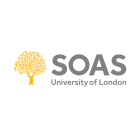The great historian John Hope Franklin, who helped to get this museum started, once said, “Good history is a good foundation for a better present and future.” He understood the best history doesn’t just sit behind a glass case; it helps us to understand what’s outside the case. The best history helps us recognize the mistakes that we’ve made and the dark corners of the human spirit that we need to guard against. And, yes, a clear-eyed view of history can make us uncomfortable, and shake us out of familiar narratives. But it is precisely because of that discomfort that we learn and grow and harness our collective power to make this nation more perfect.
Barack Obama, Remarks by the President at the Dedication of the National Museum of African American History and Culture at the National Mall in Washington, D.C. (24 September 2016)

